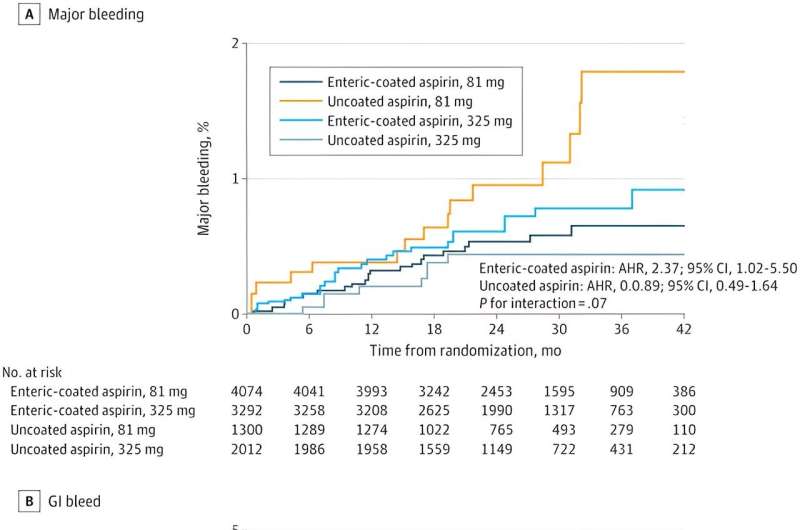Cardiovascular
Enteric-coated aspirin found as effective, but not safer, than regular aspirin
Research led by the Ochsner Medical Center, Louisiana, has found no significant differences in effectiveness or safety outcomes between enteric-coated and uncoated aspirin in patients with atherosclerotic cardiovascular disease.
In their paper, “Effectiveness and Safety of Enteric-Coated vs. Uncoated Aspirin in Patients With Cardiovascular Disease,” published in JAMA Cardiology, researchers analyzed the safety outcomes in a cohort of 10,678 participants to see which aspirin formulation is more suitable for patients with atherosclerotic cardiovascular disease.
A mix of polymers, plasticizers, and solvents make up the enteric coating on some pharmaceutical pills. The coating is designed to protect the active ingredients in a pill from acidic conditions and enzymatic degradation while passing through the stomach intact, to be later absorbed in the small intestine. This can be a useful strategy for preventing a drug from getting degraded by the stomach or as a way to protect the stomach from any unwanted effects of a drug.
Among the 10,678 participants, 69% took enteric-coated aspirin, and 31% took uncoated aspirin. There was no significant difference in effectiveness (e.g., myocardial infarction, stroke, or death) between enteric-coated and uncoated aspirin groups and no significant difference in safety outcomes, including major bleeding events. The dosage level did not significantly impact the outcomes in either formulation group.
Aspirin is frequently taken as a treatment and prevention for cardiovascular disease. In aspirin, the enteric coating has been applied in an attempt to offset the potential harm that exposure to aspirin is thought to cause to the mucosal lining of the stomach, contributing to erosion, ulcers, and bleeding.
The current study builds on previous studies that find no protective advantage to enteric coatings on aspirin, hinting at a separate mechanism involved in the associations with bleeding that have nothing to do with direct exposure.
Based on previous studies, one potential drawback to enteric-coated aspirin is that it may be more difficult to absorb into the bloodstream. While uncoated aspirin is quickly dissolved in the stomach, the coated version is slowly released in the intestines as the coating dissolves in a higher pH environment.
The current study found no significant differences in patient outcomes, suggesting that enteric-coated aspirin was just as effective as the uncoated.
The study results confirm no additional safety buffering against stomach bleeding and no decline in effectiveness associated with enteric-coated aspirin use.
There are lingering questions, as some previous smaller-scale clinical trials have shown a variety of conflicting positive and negative results of enteric-coated aspirin. These past research inconsistencies may be why, despite a robust cohort and lack of significant divergent outcomes, the authors suggest that more research is needed to confirm their findings.
More information:
Amber Sleem et al, Effectiveness and Safety of Enteric-Coated vs. Uncoated Aspirin in Patients With Cardiovascular Disease, JAMA Cardiology (2023). DOI: 10.1001/jamacardio.2023.3364
© 2023 Science X Network
Citation:
Enteric-coated aspirin found as effective, but not safer, than regular aspirin (2023, October 9)
retrieved 9 October 2023
from https://medicalxpress.com/news/2023-10-enteric-coated-aspirin-effective-safer-regular.html
This document is subject to copyright. Apart from any fair dealing for the purpose of private study or research, no
part may be reproduced without the written permission. The content is provided for information purposes only.

